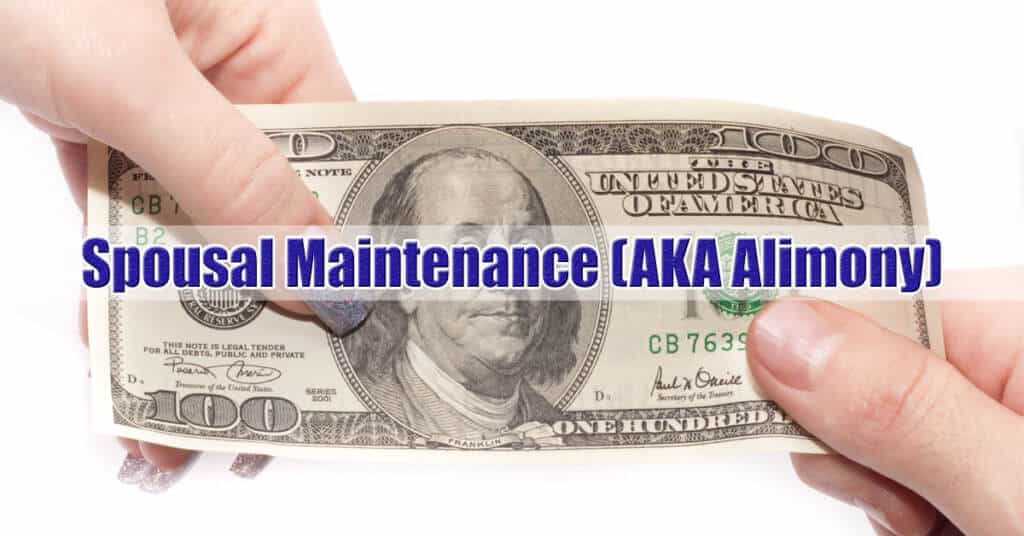As a Divorce Lawyer practicing on Long Island for many years, I have seen how New York laws on spousal maintenance have evolved over that time. You might find it hard to believe that, before 1980, New York had gender-based spousal support laws under which only wives could receive spousal support. Back then, marital fault on the part of the wife could result in a loss of alimony.
Results of Supreme Court Ruling on Gender Discrimination
This changed drastically after the Supreme Court held that such laws were unconstitutional based on gender discrimination. As a result, New York, like all other states, had to revise its alimony laws so that husbands and wives were treated equally. Now, either spouse can be ordered to pay spousal support to the other. Since that time, many changes have been made to alimony laws in New York, including gender-neutral language that works when applying the law to same sex marriages.
What is Spousal Maintenance, aka Alimony?
Spousal maintenance, also known as alimony or spousal support, is the court-ordered or agreed upon payment of money from one former spouse to the other. The amount and duration of spousal maintenance can be determined privately by the spouses in a written agreement or can be court ordered by a judge in a pending or final divorce.
Temporary & Permanent Spousal Maintenance
Spousal maintenance can fall into two general categories: temporary maintenance and permanent maintenance. Temporary maintenance is support that is ordered during a pending divorce so that the less resourced spouse can have at least some support during the pendency of the divorce proceeding until the terms of the divorce are finalized. Eventually, once the judge weighs all of the factors, the judge will make a final order.
On Long Island, Spousal Support Based On Financial Need
In New York, spousal support is determined on the basis of financial need. Courts look at which spouse is the higher earning spouse and can afford to make spousal support payments, as well as whether one spouse was highly dependent on the other for income and would likely need to seek government services to support him or herself. Courts look at the value of both marital and separate property. They also look to the duration of the marriage. This is because in a marriage of longer duration, one spouse may have become more dependent on the other and lost the ability to earn income and support him- or herself over time.
Intent Behind Spousal Maintenance
The intent behind spousal maintenance is for one spouse (the “payor spouse”) to pay the other spouse (the “payee spouse”) until that spouse is able to support himself or herself independently. The support is generally temporary unless there are certain unusual circumstances such as a disability. When there is disparate income between the two spouses, the higher earning spouse will be the payor spouse and the lower earning will be the payee spouse. The higher earning spouse will have to pay temporary support throughout the divorce proceeding.
Duration of Spousal Support
The duration of the marriage also affects the duration of spousal support payments. For some marriages, spousal support will only be required for a few months or years. For others, spousal support can last until the end of either spouse’s life or until the recipient spouse remarries.
Big Change on January 25, 2015
It is important to note that, as of January 25, 2016, New York no longer considers “enhanced earning capacity” such as a degree, professional license, celebrity goodwill, or career enhancement, earned by a spouse as a marital asset.
Effects of Prenuptial & Postnuptial Agreements
Of course, spouses who create a prenuptial or postnuptial agreement in which they agree to waive any claims of spousal support will be unlikely to have a claim for spousal support at the time of divorce. Prenuptial and postnuptial agreements can also set the amount and duration of spousal support in the event of a divorce.
Questions about Spousal Support on Long Island? Contact Us for a Free Consultation
To learn more about what you need to know about spousal maintenance (alimony) on Long Island and how to get help to protect yourself and your future visit this page: Spousal Maintenance / Alimony on Long Island, NY. If you live on Long Island or in New York City and you have questions about your spousal support arrangement or what you may be entitled to, contact the Long Island Divorce Law firm of Office of Hornberger Verbitsky, P.C. at 631-923-1910 to arrange your free consultation.
Download our Free New York Divorce Guide
Our 41-page “Guide to New York Divorce: What You Need to Know Before Hiring a Divorce Lawyer in New York” written by an experienced family law lawyer, Long Island’s Robert E. Hornberger, Esq., provides you with real information on the divorce process and the laws it rests upon in the state of New York. This book will help give you a solid foundation upon which you can begin the process of making your family’s, life better. Download your Free Guide to New York Divorce here.
